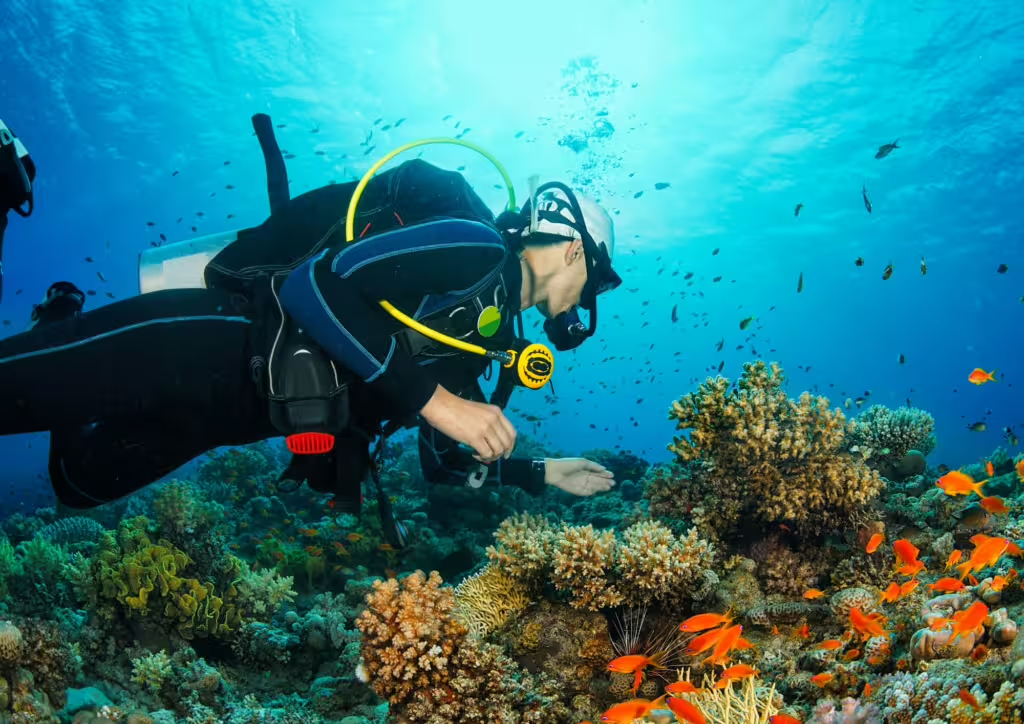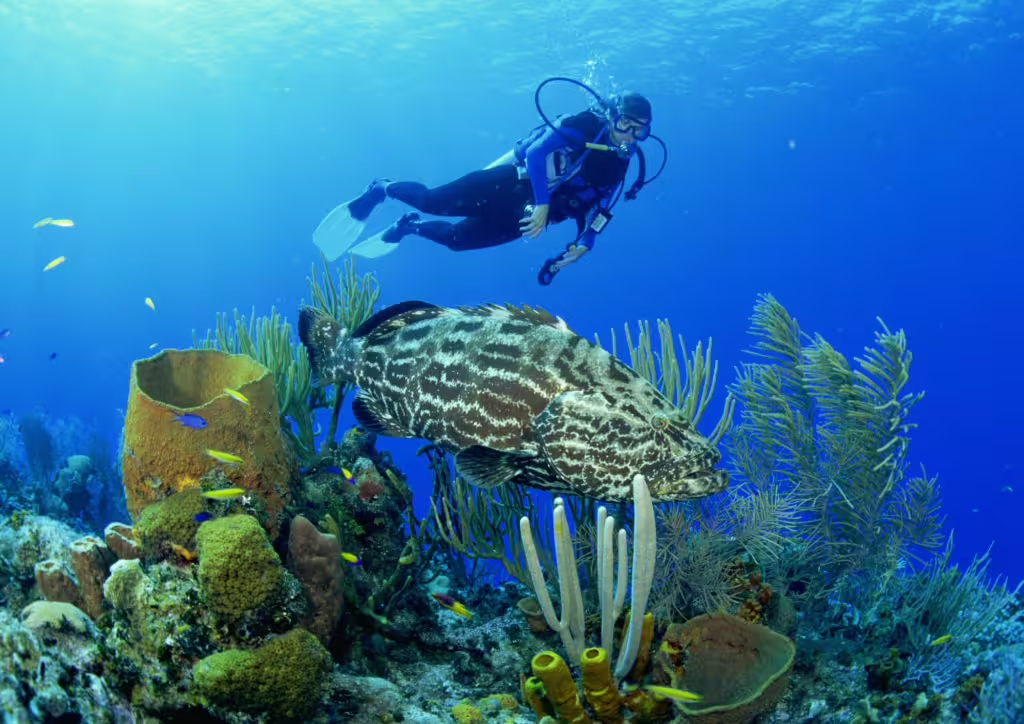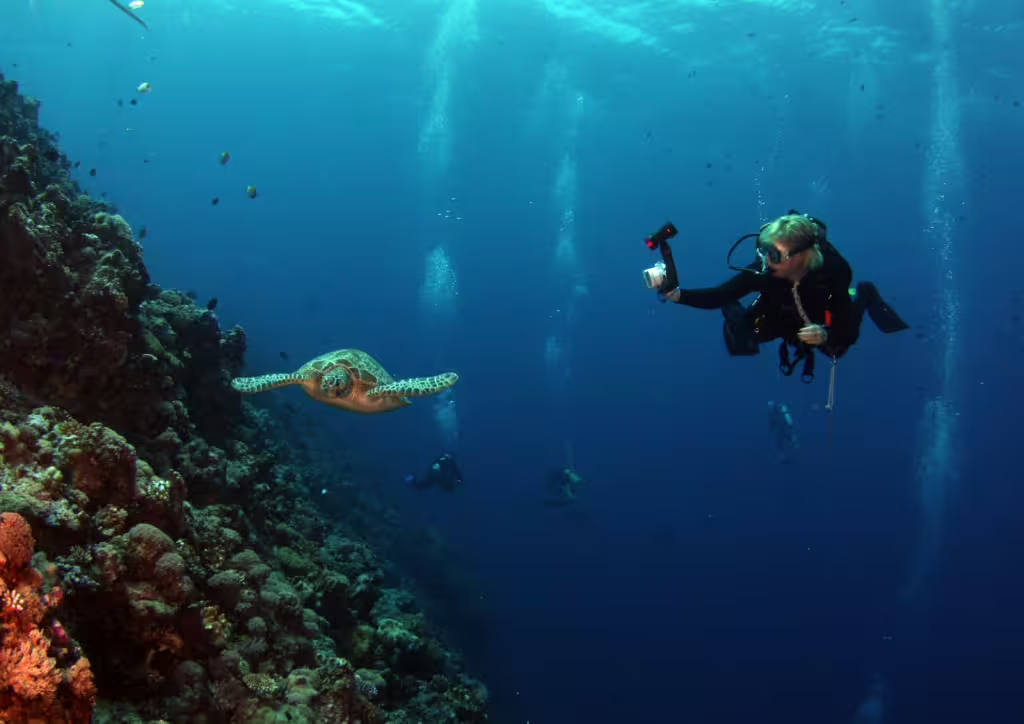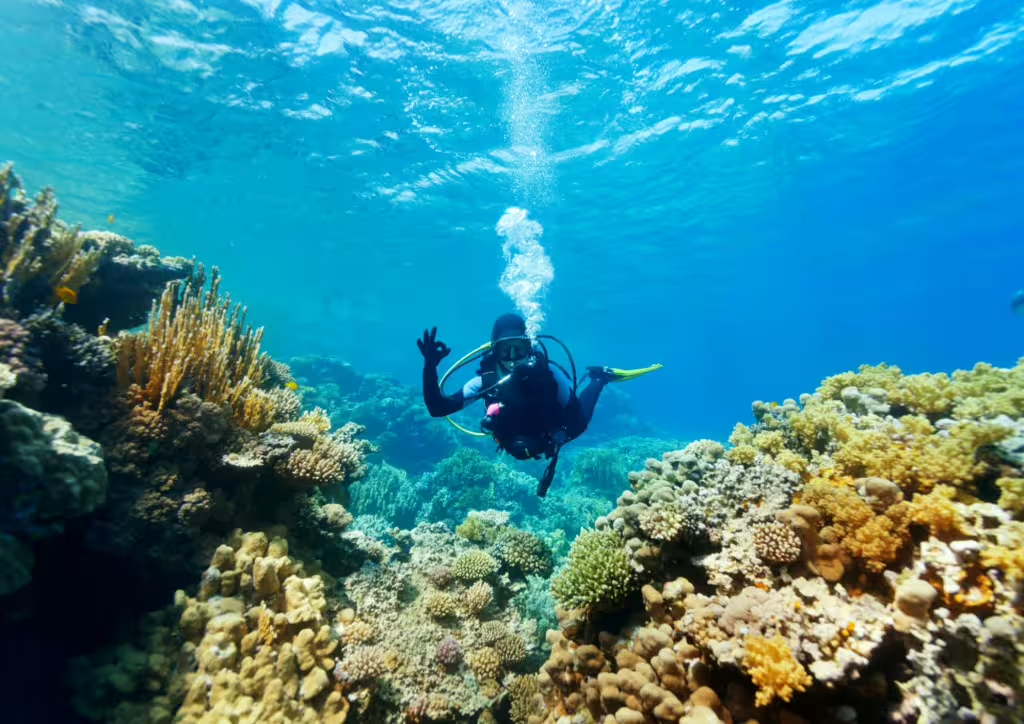Are you ready to explore the vibrant underwater world of Bali? The Bali Open Water Diving Course is the perfect introduction for adventure seekers and marine enthusiasts alike. Known for its crystal-clear waters and diverse marine life, Bali offers a unique setting for both beginners and experienced divers to hone their skills and embark on exhilarating underwater adventures. In this complete guide, we will delve into everything you need to know about the Bali Open Water Diving Course, from what to expect during your training to the best dive sites to explore. Prepare to dive into a new and thrilling experience that combines education, excitement, and the beauty of the ocean.
What to Expect from a Bali Open Water Diving Course
When embarking on a Bali Open Water Diving Course, participants can expect an exhilarating blend of education and adventure. The course generally begins with theory lessons that cover the essential principles of diving, safety protocols, and equipment usage. Instructors provide engaging demonstrations, ensuring that each student understands the fundamentals of underwater navigation, buoyancy control, and emergency procedures. The training often takes place in a warm, clear environment, which is characteristic of Bali’s stunning aquatic backdrop. This initial phase sets the foundation for the practical sessions that follow in the Bali Open Water Diving Course.
As students transition into the water, they apply the knowledge gained during classroom sessions. The practical dives, typically held in vibrant coral reefs teeming with marine life, offer hands-on experience while practicing essential skills. Each dive in the Bali Open Water Diving Course is supervised by experienced instructors who provide real-time feedback and support, ensuring a safe and enjoyable experience.
By the end of the Bali Open Water Diving Course, participants will be certified to dive independently, ready to explore the underwater wonders that Bali has to offer. This incredible journey through the Bali Open Water Diving Course not only enhances diving skills but also fosters a deep appreciation for the ocean environment and a newfound sense of adventure.
Prerequisites for Certification

Before embarking on your journey to obtain a Bali Open Water Diving Course certification, there are a few prerequisites to ensure you are adequately prepared and can enjoy your underwater adventure safely. Firstly, participants should possess a basic level of health and fitness. While you don’t need to be an athlete, a reasonable level of physical health is essential since diving can be physically demanding.
Additionally, a declaration of good health and the completion of a medical questionnaire provided by the diving school is typically required. Notably, individuals with certain medical conditions may be asked to present a doctor’s approval before diving. Furthermore, a minimum age requirement usually applies, with most agencies allowing candidates aged 10 and above to enroll in the course, provided they are accompanied by a parent or guardian for minors under 18. Besides health considerations, aspiring divers should also expect to complete a theory component that includes understanding the science of diving, equipment usage, and safety protocols.
This foundational knowledge is vital, as it lays the groundwork for practical skills learned during confined water training and open water dives. Some courses also allow for online theory sessions, which can make preparation more flexible and convenient for students. Overall, being aware of these prerequisites will enhance your learning experience and make your transition into the underwater world of Bali smoother and more enjoyable.
Choosing the Right Dive School in Bali
Choosing the right dive school in Bali is crucial to ensuring an enjoyable and safe diving experience. With numerous options available, it’s important to consider several factors before making your decision. Look for schools that are certified by recognized organizations like PADI or SSI, as this guarantees that they adhere to international safety and training standards.
Additionally, check the reviews and testimonials from previous students, as they can provide valuable insights into the quality of instruction and equipment. A reputable dive school should also prioritize safety, offering briefings and practicing safety drills before each dive. Another important aspect to consider is the dive school’s training approach and facilities. Some schools specialize in small group sizes, which often leads to more personalized instruction from experienced instructors.
Evaluate their available packages and remember that investing in a course that includes comprehensive training sessions and quality equipment can make all the difference. Furthermore, consider the school’s location and convenience in relation to your accommodation and dive sites. By doing thorough research and asking the right questions, you’ll find a Bali Open Water Diving Course that best fits your needs, setting the stage for an unforgettable underwater adventure.
Overview of the Course Curriculum

The Bali Open Water Diving Course is designed to provide divers with a comprehensive understanding of the fundamentals of diving. The curriculum encompasses both theoretical and practical aspects, starting with classroom sessions that cover essential topics such as dive physics, equipment usage, and marine environment awareness. Students will learn about pressure changes, buoyancy control, and the effects of immersion, ensuring they are well-prepared for underwater adventures.
The course also emphasizes safety measures and emergency procedures, preparing divers to handle various situations they may encounter while exploring Bali’s stunning underwater landscape. In addition to theoretical learning, the course includes extensive hands-on training. Participants engage in confined water sessions to practice skills such as ascending and descending safely, snorkeling techniques, and proper use of diving gear.
After mastering these fundamental skills, divers transition to open water dives, where they can experience the vibrant marine life and breathtaking coral reefs that Bali is renowned for. With an emphasis on both safety and enjoyment, the Bali Open Water Diving Course equips beginners and advanced divers alike with the confidence and knowledge they need to explore the underwater world responsibly.
Essential Gear for Open Water Diving
When embarking on a Bali Open Water Diving Course, having the right gear is crucial to ensure a safe and enjoyable experience underwater. The essential equipment includes a mask, snorkel, fins, wetsuit, and regulator. A well-fitted mask allows for clear vision while exploring the vibrant marine life, while a sturdy snorkel enables you to breathe easily at the surface.
Fins help you maneuver gracefully through the water, making your diving experience more enjoyable. A wetsuit is important for thermal protection and to shield your skin from potential irritants like jellyfish or coral. In addition to personal gear, you’ll also need rental or purchase options for a buoyancy control device (BCD) and tank. The BCD is essential for maintaining proper buoyancy and ensuring that you can control your ascent and descent.
Coupled with an air tank filled with compressed air, this setup allows you to venture deeper into the stunning underwater landscapes that Bali has to offer. Investing in your personal gear can enhance comfort and efficiency while diving, but don’t forget to seek guidance from your instructors on the best equipment based on your experience level.
Exploring Bali’s Underwater Wonders
Bali is renowned for its breathtaking underwater ecosystems, making it a premier destination for those looking to embark on a Bali Open Water Diving Course. The island boasts a diverse array of marine life, including vibrant coral reefs, tropical fish, and even occasional encounters with larger species such as manta rays and sea turtles. Diving in Bali not only reveals the rich biodiversity of the Indian Ocean but also showcases the importance of marine conservation efforts, encouraging divers to appreciate and protect these underwater treasures.
With a plethora of dive sites ranging from the serene waters of Amed to the challenging currents of Tulamben, divers of all skill levels can find their niche in Bali’s aquatic playground. By enrolling in a Bali Open Water Diving Course, participants are not just learning how to dive; they’re also immersing themselves in the local diving culture and becoming part of a global community of divers.
Instructors in Bali emphasize safety and environmental awareness, ensuring that each diver leaves with a greater understanding of the underwater world. From breathtaking shipwreck dives to exploring stunning underwater caves, the opportunities are endless for those ready to take the plunge. Whether you’re a seasoned diver or a first-timer, Bali’s underwater wonders promise to leave an indelible mark on every adventurer’s heart.
Tips for First-Time Divers

Embarking on your first Bali Open Water Diving Course can be exhilarating yet daunting. To ensure a smooth experience, it’s essential to familiarize yourself with the basics of diving equipment and underwater communication techniques. Prior to your course, consider watching introductory videos about diving safety and practices. Many diving schools in Bali offer pre-course readings or online tutorials that can help you grasp essential concepts.
Additionally, practice relaxation techniques, as staying calm underwater is key to a successful dive. Always remember to discuss any concerns with your diving instructor—they’re there to support you and answer your questions. Your physical conditioning can also significantly impact your diving experience. Although you don’t need to be an athlete, maintaining good physical health will help you adapt better to the challenges of swimming against currents or managing buoyancy.
Make sure that you are comfortable in the water and are confident swimming in various conditions. A positive mindset can transform your Bali Open Water Diving Course into a thrilling adventure that builds your skills and broadens your horizons as you explore the mesmerizing underwater world. Remember, the ocean is waiting for you, so dive in and enjoy every moment of this incredible journey!
Safety Measures and Best Practices
Beyond initial safety checks, divers should practice good buoyancy control and equalization techniques to minimize risks during descents and ascents. Staying hydrated and maintaining physical health are equally important, as underwater diving can be demanding on the body. It’s beneficial to familiarize yourself with dive sites in Bali, as different locations may require varying levels of skill and awareness. Ultimately, a solid foundation in safety measures and best practices will lead to a more rewarding experience on your Bali Open Water Diving Course, allowing you to appreciate the diverse marine life while diving safely.
Embark on Your Underwater Adventure Today
In conclusion, a Bali Open Water Diving Course not only equips you with the essential skills and certifications needed for scuba diving but also immerses you in the breathtaking beauty of Bali’s underwater world. With vibrant coral reefs, captivating marine life, and the warm embrace of tropical waters, each dive brings an exhilarating sense of discovery and adventure. Whether you’re a beginner or looking to enhance your diving skills, Bali offers an exceptional setting that caters to all levels of divers, promising unforgettable experiences.
As you prepare for your diving journey, remember to prioritize safety, practice environmentally sustainable diving, and, most importantly, enjoy every moment of your underwater exploration. The ocean holds countless wonders waiting to be explored, and a Bali Open Water Diving Course is your ticket to experience it all. So gear up, take the plunge, and create lifelong memories in one of the world’s diving paradises!


It seems like there’s no blog summary provided, can you please share the content?
Thank you for reaching out, Emily. Unfortunately, it seems there was an error in our blog summary section. Please allow us to share the content for you. At Eko Life Malaysia, we’re dedicated to empowering bicycle, ebike, and escooter enthusiasts. Our mission focuses on three main pillars: affordability, quality products, and expert servicing. We strive to build a community that shares this vision. If you’re interested in learning more about us, kindly drop us a line at [email protected], or give us a call at +62 857 3891 8262.
The blog looks like it’s not up to date, maybe you can update the content to make it more relevant?
Hi Kevin, thank you for bringing this to our attention. We truly appreciate your feedback and understand the importance of keeping our content up-to-date. Our team will look into updating the blog to ensure it remains relevant and helpful to our community. We value your opinion and would like to hear more about what you think we could improve on.
I’m interested to read the blog, but there’s no information provided. Can we get some details about the content?
Hi Lisa, thank you for reaching out! Our blog at Eko Life Malaysia is centered around empowering cycling enthusiasts through affordability, quality products, professional servicing, and forging communities. Our recent blog posts have explored topics such as eco-friendly transportation, bicycle maintenance tips, and e-bike reviews. If you have any specific interests or topics you’d like to see us cover, please let us know! Feel free to contact us at [email protected] or +62 857 3891 8262. We’d be happy to provide more details.